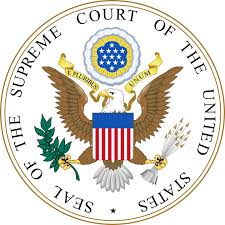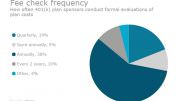This article is a follow-up to Wednesday’s story on the growing threat of class-action lawsuits against companies over wage-and-hour practices.
The Supreme Court’s mid-January decision to take on a trio of cases related to class actions may serve to decide a hotly contested issue that’s of great economic consequence to many companies.
The issue is around arbitration agreements, in which a company’s customers or employees agree to use arbitration, rather than courts, to settle any legal claims against the company.
In both 2011 and 2015, the Supreme Court reaffirmed that companies have the right to block consumers from banding together in class actions against businesses, as granted by the Federal Arbitration Act of 1925. The 2015 ruling dismissed a class-action lawsuit over early-termination fees against satellite provider DirecTV.
Cell-phone contracts and some other types of service agreements often include arbitration agreements with waivers that not only prohibit consumers’ participation in class-action litigation, but specifically bar them from participating in class-action arbitration. In some cases consumers also sign such agreements when purchasing certain kinds of products, like televisions and cars.
Now, the court will look at whether it’s legal for companies to include such waivers in arbitration agreements with employees. As with consumer arbitration agreements, the waiver forces a plaintiff to sue the company as an individual rather than as part of a collective action (the term that applies to employee groups that sue companies, whereas class actions are brought by non-employee groups).
Critics of these waivers — worker and consumer advocates, unions, and civil rights advocates — say that only class/collective actions have a chance to change the behavior of corporations.
Companies counter that “they’re willing to pay anybody they’ve wronged, and they can do it more quickly and efficiently with arbitration, without the need for huge [cases] that may cost millions of dollars and make plaintiffs’ lawyers rich,” says Gerald Maatman, co-chair of the class-action defense group at law firm Seyfarth Shaw.
The waivers are a tool for managing litigation risk that many companies have used to save millions of dollars by warding off potential consumer class actions, Maatman notes. But companies doing business nationwide have generally not included them in arbitration agreements with employees, he says, for a couple of reasons.
First, while it’s legal in some states, including Texas, it’s illegal in others, like California, Illinois, and New York.
Also, the Obama administration, through the National Labor Relations Board (NLRB), took the position that including the waivers in employee arbitration agreements was a violation of the National Labor Relations Act (NRLA). In two of the cases the Supreme Court accepted (and consolidated into one case), federal appeals courts affirmed district-court rulings that the defendant companies violated the NLRA. In the other case, to which the NLRB is a party, federal district and appeals courts ruled in favor of the defendant company.
A ruling by the Supreme Court that the practice is legal would give companies the opportunity to effectively bar collective actions by employees. “For many CFOs, this may be the most important thing happening on the law front in 2017,” says Maatman. “The stakes are super-high.”
A wild-card factor is how long it will take for a ninth Supreme Court Justice — Donald Trump’s nominee, Neil Gorsuch, or someone else if the Senate does not confirm him — to be seated. Presumably, a Trump-nominated justice would take a pro-business stance.
“Many legal commentators are saying that the Democrats aren’t going to say yes to Gorsuch right away, and that while he more likely than not will pass through, he may not [join the court] until May or June and may not participate in any cases until after the current session ends [on June 30],” says Maatman.
In that event, should the court take a vote on the case, it could be decided 4-4. The case would then be dismissed and the discrepancy in laws from state to state would remain, as would the dispute over whether including the waivers in arbitration agreements is an NLRA violation.
The court also could choose to hold the case to be decided in its next session.
The three cases the Supreme Court took up and consolidated are:
Please visit the source link below to read the entire article.
Source: ww2.cfo.com





Be the first to comment on "Can Companies Bar Workers From Class-Action Claims?"